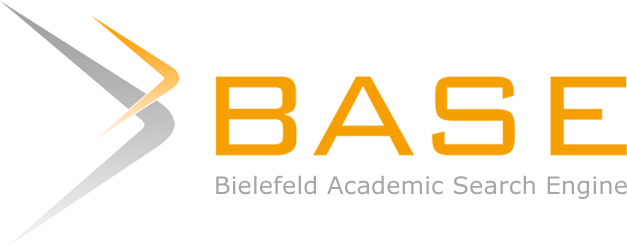Abstract
The Indonesian government's policy to reform state financial administration through the adoption of IPSAS in Indonesia has drawn controversy among accounting academics. This study evaluates the policy from an empiricist perspective in the epistemology of the philosophy of science at the stages of formulation, evaluation, and consequences of the policy. The results of the analysis show that the formulation and evaluation stages that are not based on the principle of empiricism that emphasizes observable evidence in the formation of ideas and scientific studies cause various obstacles in the implementation process and ultimately have negative consequences for society. This article presents recommendations that can be made to improve future policies.
References
Adhikari, P., & Mellemvik, F. (2015). Research in Accounting in Emerging Economies Article information : In Research in Accounting in Emerging Economies (Vol. 10). Elsevier. https://doi.org/10.1108/S1479-3563(2010)0000010012
Adiputra, I. M. P., Utama, S., & Rossieta, H. (2018). Transparency of local government in Indonesia. Asian Journal of Accounting Research, 3(1), 123–138. https://doi.org/10.1108/AJAR-07-2018-0019
Amyulianthy, R., Muda, R., Said, J., & Setyaningrum, D. (2022). Measuring Good Public Governance in the Local Governments of Indonesia : A Multidimensional Index. Asia-Pacific Management Accounting Journal, 17(2).
Ball, I. (1994). Reinventing Government: Lessons Learned from the New Zealand Treasury. The Government Accountants Journal, 43(3), 19.
Bonjour, Laurence. (2009). Epistemology: Classic Problems and Contemporary Responses, Rowman & Littlefield Publishers, Incorporated. ProQuest Ebook Central, https://ebookcentral.proquest.com/lib/indonesiau-ebooks/detail.action?docID=500782.
Boxall, P. (1998). The Revolution in Government Accounting. Australian CPA (April).
Brusca, I., & Martinez, J. C. (2016). Adopting International Public Sector Accounting Standards : a challenge for modernizing and harmonizing public sector accounting. International Review of Administrative Sciences, 28(4), 724–744. https://doi.org/10.1177/0020852315600232
Cain, S. (2017). Twenty Years of International Public Sector Standard Setting. https://www.ifac.org/knowledge-gateway/supporting-international-standards/discussion/twenty-years-international-public-sector-standard-setting#:~:text=It all began in 1986,the first accrual basis IPSAS
Christofzik, D.I. (2019). Does accrual accounting alter fiscal policy decisions? Evidence from Germany. European Journal of Political Economy, 60.
Chua, W. F., & Sinclair, A. (1994). Interests and the Profession-State Dynamic: Explaining the Emergence of the Australian Public Sector Accounting Standards Board. Journal of Business Finance & Accounting, 21(5), 669–705. https://doi.org/10.1111/j.1468-5957.1994.tb00343.x
Churchill, M. (1992). Accrual Accounting in the Public Sector. Australian Accountant (June).
Dennis, J. (1993). Financial Reporting by the Government in Canada. CMA Magazine (November).
Evans, M. (1995). A Change for the Better? Accountancy, 115.
Fahmid, I. M. (2020). New development: IPSAS adoption, from G20 countries to village governments in developing countries. Public Money and Management, 40(2), 160–163. https://doi.org/10.1080/09540962.2019.1617540
Groot, T. and Budding, T. (2008). New Public Management’s current issues and future prospects. Financial Accountability and Management, 24(1).
Guthrie, J. (1998) Application of Accrual Accounting in the Australian Public Sector—Rhetoric or Reality? Financial Accountability & Management, 14, 1-19. http://dx.doi.org/10.1111/1468-0408.00047
Harun, H. (2020). Understanding the institutional challenges and impacts of higher education reforms in Indonesia. Public Money and Management, 40(4), 307–315. https://doi.org/10.1080/09540962.2019.1627063
Harun, H., Eggleton, I. R. C., & Locke, S. (2021). An integrated model of IPSAS institutionalisation in Indonesia : a critical study. International Journal of Public Sector Management, 34(2), 155–170. https://doi.org/10.1108/IJPSM-07-2020-0195
Harun, H., Van Peursem, K., & Eggleton, I. (2012). Institutionalization of accrual accounting in the Indonesian public sector. Journal of Accounting and Organizational Change, 8(3), 257–285. https://doi.org/10.1108/18325911211258308
IMF. (1999). IMF-supported programs in Indonesia: A preliminary assessment. http://www.imf. org/external/pubs/ft/op/op178/OP178.pdf
IPSASB. (2018). International Public Sector Accounting Standards: IPSAS 1 - Presentation of Financial Statements. www.ifrs.org
Jati, W. R. (2012). Inkonsistensi Paradigma Otonomi Daerah di Indonesia : Dilema Sentralisasi atau Desentralisasi. Jurnal Konstitusi, 9(4).
Kementerian Keuangan Republik Indonesia. (2023). APBD dan Keberpihakannya pada Peningkatan Indeks Pembangunan. https://djpb.kemenkeu.go.id/kppn/lubuksikaping/id/data-publikasi/artikel/3078-apbd-dan-keberpihakannya-pada-peningkatan-indeks-pembangunan-manusia.html#:~:text=Anggaran Pendapatan%2C dan Belanja Daerah,sampai dengan tanggal 31 Desember.
Kharisma, B. (2013). DESENTRALISASI FISKAL DAN PERTUMBUHAN EKONOMI : SEBELUM DAN SESUDAH ERA DESENTRALISASI. Jurnal Ekonomi Dan Studi Pembangunan, 14(2), 101–119.
Likierman, A. (2000). Changes to managerial decision-taking in U.K. central government. Management Accounting Research, 11(2), 253–261. https://doi.org/10.1006/mare.2000.0131
Mack, J. (2004). An investigation of the information requirements of users of Australian public sector financial reports. Queensland University of Technology. https://eprints.qut.edu.au/15854/
McCrae, M., & Aiken, M. (2000). Accounting for infrastructure service delivery by Government: Generational issues. Financial Accountability and Management, 16(3), 265–287. https://doi.org/10.1111/1468-0408.00108
McLeod, R. H., & Harun, H. (2014). Public Sector Accounting Reform at Local Government Level in Indonesia. Financial Accountability and Management, 30(2), 238–258. https://doi.org/10.1111/faam.12035
Micallef, F. (1994). A New Era in Reporting by Government Departments. Australian Accountant (March).
Mir, M., Harun, H., & Sutiyono, W. (2019). Evaluating the Implementation of a Mandatory Dual Reporting System: The Case of Indonesian Local Government. Australian Accounting Review, 29(1), 80–94. https://doi.org/10.1111/auar.12232
Mir, M., & Sutiyono, W. (2013). Public Sector Financial Management Reform: A Case Study of Local Government Agencies in Indonesia. Australasian Accounting, Business and Finance Journal, 7(4), 97–117. https://doi.org/10.14453/aabfj.v7i4.7
Moretti, D. (2016). Accrual practices and reform experiences in OECD countries Results of the 2016 OECD Accruals Survey. OECD Journal on Budgeting, 16 (1).
Musmini, L.S., Yuniarta, G.A., Sulindawati, N.L.G. and Yudantara, G.A.P. (2019). Epistemology of accounting practices: Another frame of objectivity claims. Proceedings of the International Conference on Tourism, Economics, Accounting, Management, and Social Science. https://doi.org/10.2991/teams-19.2019.66.
Nasution, A. (2009). Kemajuan transparansi dan akuntabilitas keuangan negara periode 2004-2009. Badan Pemeriksa Keuangan, Jakarta.
Palupi, A., Cummings, L. and Dyball, M.C. (2011). The transformation of Indonesian government accounting during the reform period: a Bourdieu analysis.13th Biennial Conference of the Comparative International Governmental Accounting Research CIGAR Network, Ghent, 10th June 2011.
Peraturan Menteri Dalam Negeri Nomor 13 Tahun 2006 tentang Pedoman Pengelolaan Keuangan Daerah.
Peraturan Menteri Dalam Negeri Nomor 59 Tahun 2007 tentang Pedoman Pengelolaan Keuangan Daerah.
Peraturan Pemerintah Nomor 24 Tahun 2005 (PP 24/2005) tentang Standar Akuntansi Pemerintahan.
Peraturan Pemerintah Nomor 71 Tahun 2010 tentang Standar Akuntansi Pemerintahan.
Rakhman, F., & Wijayana, S. (2019). Determinants of financial reporting quality in the public sector: Evidence from Indonesia. International Journal of Accounting, 54(3). https://doi.org/10.1142/S1094406019500094
Ritonga, I. T. (2018). Analysing the quality of accrual accounting implementation in indonesia local governments. Jurnal Akuntansi, 22(2), 162. https://doi.org/10.24912/ja.v22i2.345
Ritonga, I. T. (2020). Public Accounting and Business Accounting: Two Different Upstream. Journal of Accounting and Investment, 21(3). https://doi.org/10.18196/jai.2103156
Russel, B. (1912). The Problems of Philosophy. In Philosophy: Key Texts. https://doi.org/10.1007/978-1-4039-1370-8_5
Ryan, M. (1988). Postmodern Politics. Theory, Culture & Society, 5(2), 559-576. https://doi.org/10.1177/0263276488005002021
Schmidthuber, L., Hilgers, D. and Hofmann, S. (2022). International public sector accounting standards (IPSASs): a systematic literature review and future research agenda. Financial Accountability and Management, 38.
Tarmidi, L. T. (1999). Krisis Moneter Indonesia: Sebab, Dampak, Peran IMF dan Saran. Buletin Ekonomi Moneter dan Perbankan. Buletin Ekonomi Moneter Dan Perbankan, 1(4), 1–25. https://bmeb.researchcommons.org/bmeb/vol1/iss4/6/
Undang-Undang Nomor 17 Tahun 2003 tentang Keuangan Daerah.
Undang-Undang Nomor 22 Tahun 1999 tentang Pemerintah Daerah.
Undang-Undang Nomor 25 Tahun 1999 tentang Perimbangan Keuangan Pemerintah Pusat dan Daerah.
UNDP. (1999). Decentralization: a sampling of definitions (Issue October). http://web.undp.org/evaluation/documents/decentralization_working_report.pdf
van Helden, G. (2005). Researching Public Sector Transformation: The role of Management Accounting. Financial Accountability and Management, 21(1), 99–133. https://doi.org/10.1111/j.0267-4424.2005.00211.x
Vinnari, E., & Näsi, S. (2008). Creative Accrual Accounting in the Public Sector: ‘Milking’ Water Utilities to Balance Municipal Budgets And Accounts. Financial Accountability and Management, 24(2), 97–116. https://doi.org/10.1111/j.1468-0408.2008.00448.x
Wallace, R. & Briston, R. (1993). Improving the Accounting Infrastructure in Developing Countries. Research in Third World Accounting, 2.
Webster, A. (1998). Improving Performance: Accrual Accounting Points the Way Ahead. Australian CPA (April).
Wong, S. (1998). Full Speed Ahead– How to Move Forward Full Accrual Accounting for Capital Assets. CMA Magazine (October).
Yuniza, M. E., & Nugroho, A. D. (2014). Mekanisme Pertanggungjawaban Anggaran Pendapatan Dan Belanja Daerah (Studi Kasus D.I. Yogyakarta). Mimbar Hukum - Fakultas Hukum Universitas Gadjah Mada, 25(2), 231. https://doi.org/10.22146/jmh.16094
Bahasa Abstract
Kebijakan pemerintah Indonesia untuk mereformasi administrasi keuangan negara melalui adopsi IPSAS di Indonesia menuai kontroversi dikalangan akademisi akuntansi. Penelitian ini mengevaluasi kebijakan tersebut dari sudut pandang empirisme dalam epistemologi filsafat ilmu pada tahap perumusan, evaluasi, dan konsekuensi dari kebijakan tersebut. Hasil analisis menunjukkan bahwa tahap perumusan dan evaluasi yang tidak didasarkan pada prinsip empirisme yang menekankan pada bukti yang dapat diamati dalam pembentukan gagasan serta kajian ilmiah menyebabkan berbagai hambatan dalam proses implementasi dan pada akhirnya menimbulkan konsekuensi negative bagi masyarakat. Artikel ini menyajikan rekomendasi yang dapat dilakukan untuk memperbaiki kebijakan dimasa depan.
Recommended Citation
Sari, Nia Pramita
(2024)
"Evaluasi Kebijakan Adopsi IPSAS di Indonesia: Sebuah Kajian Empirisme,"
Jurnal Manajemen dan Usahawan Indonesia: Vol. 47:
Iss.
1, Article 4.
DOI: 10.7454/jmui.v47i1.1085
Available at:
https://scholarhub.ui.ac.id/jmui/vol47/iss1/4







